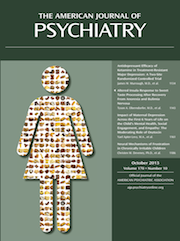Substance abuse and addiction pose a growing threat to public health and precipitate ravaging social and financial burdens upon individuals and their families. As a result, despite current scientific disenchantment with variants associated with addiction, a large segment of the population envisages genomics as the wellspring of novel alternatives for treatments and cures. This is due, at least in part, to the perseveration in the media of theories of causation indicating that genes control complex human behaviors and traits. The misleading hype regarding the power and promise of genomics is one among many ethical concerns associated with conducting, translating, and applying genetic research. Genetic Research on Addiction, edited by Audrey Chapman and authored by an impressive group of scholars, provides a thorough, well-referenced, and forthright overview of the ensuing ethical, legal, and public health concerns surrounding this field.
The book has four sections, a design that aids the reader in gaining access to pertinent topics in the midst of a thicket of information. In the introductory section, Chapman defines addiction by describing diverse conceptions of addiction, including the moral, biomedical, and psychological models. The disagreement among experts and society alike regarding which model best depicts the nature of addiction is possibly the most significant ethical and legal issue in the treatment of addiction. Rightfully, this issue resonates throughout the book. Chapman and the authors recommend in the final chapter that the biomedical model, “broadly conceived,” provides the most defensible explanation of addiction. Their explanation of broadly conceived rejects a reductive genetic or neuroessentialist concept of addiction that negates the crucial role of social, environmental, and cultural factors. Moreover, the authors disavow the notion that individuals with addiction disorders lack control over their decision making and, consequently, hold them responsible for their behavior. This position echoes an emerging consensus among scientists and ethicists that addiction is subject to gene-gene and gene-environment interaction, and individuals with a family history of addiction may circumvent their genetic vulnerability by avoiding or limiting drug exposure. Even those ethicists who maintain that the risk-taking propensity of persons with addiction involves a somewhat impaired capacity for decision making should encounter scant disagreement with the authors’ defensible position.
In chapter 9, Peter Adams takes a no-nonsense approach to the “moral jeopardy” of addiction researchers accepting funding derived from profits of addictive consumptions. Adams bases his analysis on his own experience of “raw desire” to take profits from slot machines, which he subsequently declined rather than accept funding to pursue good research from a source that entails harm or creates real or perceived conflicts of interest (p. 125). The discussion continues in chapter 10, with Thomas Babor and Katherine Robaina utilizing case studies from the tobacco, alcohol, and gambling industries to conclude that funds from companies that produce addictive consumptions are attempting to direct research, shift blame, and pursue a public relations strategy. At this point, the narrative veers from the balanced tone of the rest of the book by practically disregarding the possibility that any scientific or therapeutic benefits may accrue from research centers funded by profits from addictive consumptions. Admittedly, no endeavor is devoid of self-interest. Yet to relegate the entire scientific mission of such foundations to “biased research” (p. 146) negates that very prestigious and well-known researchers serve on scientific advisory boards and grant review sections of these organizations. As an ethicist who conducts federally funded research on addiction and a member of a family involved in a large brewery, I found that chapters 10 and 11 missed an opportunity to formulate a comprehensive approach to this important topic.
There are many reasons to recommend this book as an excellent resource for researchers, ethicists, clinicians, academics, policymakers, and professional readers. Each chapter takes a fresh approach to foundational topics, including informed consent, data sharing, privacy, return of individual research results, and stigma. The common theme that is evident throughout underscores the necessity to dispel misconceptions and proceed with caution to interpret and apply findings from genetic research on addiction to the creation of policy. The integration of a multipronged approach that includes consideration of ethics, the law, and public health is particularly valuable. While the extensive nature of the book involves some redundancy for one who reads it from cover to cover, it provides a wealth of information. Chapman and a cadre of notable authors make an important contribution to a field laden with sensitive ethical issues and challenged by a paucity of actionable research results.

